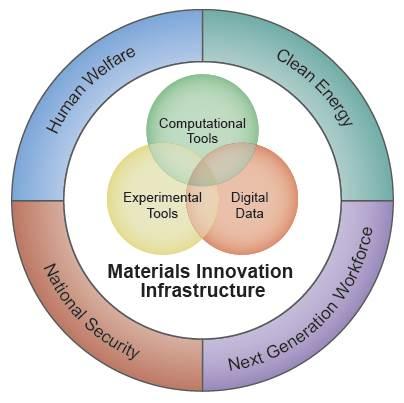Summary
The NIST Materials Data Repository is open to the research community interested in developing best practices in the management of materials data. We are currently looking into use cases for expansion of the site including, but not limited to, partnerships with other projects focusing on discoverability. For more information go to https://materialsdata.nist.gov
Description

In support of NIST's MGI goals, the NIST materials data repository provides a concrete mechanism for the interchange and re-use of research data on materials systems.
The NIST repository is principally a file repository, accepting data in any format. To mitigate the opacity of binary data, and to provide for searchability and discoverability, the repository accepts metadata associated with data files, including title, author, and ownership information, as well as descriptive metadata, where available. The repository is further organized into communities and collections, which helps to promote data re-use within user groups, as well as providing a measure of browsability.
The particular technology used to implement the repository, called DSpace, also includes the ability to federate with other repositories, persistent identifiers for deposited data files, and a web accessible API for machine access. This API is currently being used to add references to the data contained in the Materials Data Repository into other efforts, such as the Root and Rules based search algorithm and the Materials Data Facility, and may also serve as a way to search via a wider data gateway effort.
Going forward, we expect this repository to continue to be an important component of the MGI data infrastructure, and are committed to evolving it along these lines in response to the needs of the MGI community.

